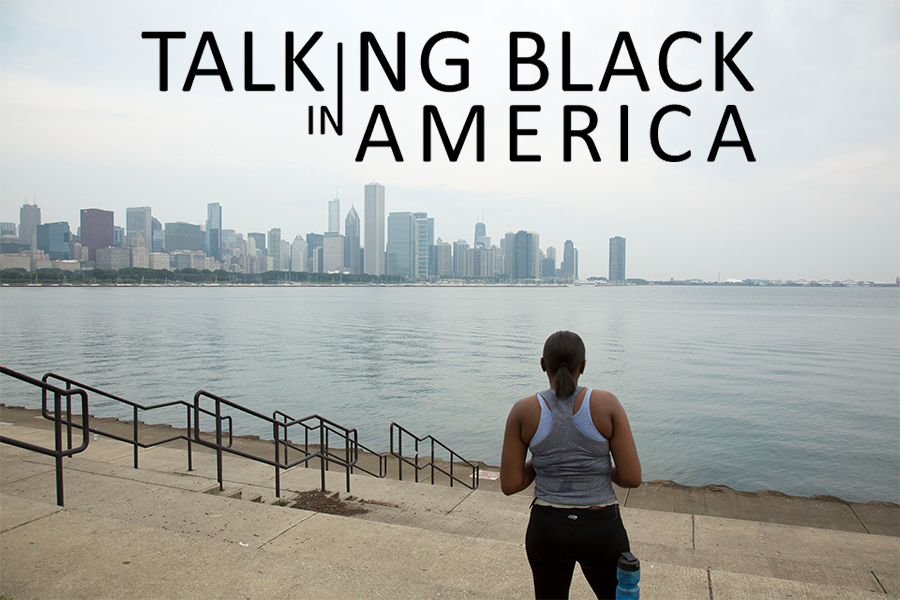By Gabrielle Wanneh
For The Diamondback
More than 500 students, faculty and various county educators gathered in Hoff Theater Tuesday evening at the University of Maryland to watch Talking Black in America, a documentary about the debate surrounding African-American speech.
The film explored various types of black communication used in different regions of the country, tying them together with the issues of race, identity, isolation and exclusion. After instances of racism at this university and college campuses around the country, the Language Science Center decided to host this screening.
“I felt surges of pride, love and affirmation,” said Heather Kafele, a speech pathology specialist for Prince George’s County Schools. “The film really breaks down inappropriate assumptions that the language is beneath the standard.”
Those who hosted the event wanted to enlighten the campus community on racial prejudices through the medium of language and speech, said Jan Edwards, the associate director of the center.
“I want us to host events that are meaningful to the university as a whole,” Edwards said. “Given the events that have happened, I feel that linguistics can help us to talk about the larger issues involving language, race and inclusiveness.”
After the screening, attendees had the opportunity to ask questions of the documentary’s executive producer, Walt Wolfram.
“Until we start going public and have the discussion, nothing will change,” Wolfram said.
Educators asked Wolfram how they could take the film’s message and apply it their classrooms. Students also engaged in discussion on how other races view black English, as well as how black students attending schools where they are the minority feel.
Many attendees said they felt the event was relevant, especially in context of recent events at this university, as well as nearby campuses, such as the University of Virginia in Charlottesville, where Heather Heyer, 32, died when a car plowed into a crowd of people protesting a white supremacist rally.
At this university, 2nd Lt. Richard Collins, a student visiting from Bowie State University, was fatally stabbed in May near the Montgomery Hall bus stop. Then-student Sean Urbanski, who is white, has been indicted on one count of murder in connection with the stabbing. Police and the FBI are investigating the killing as a possible hate crime, though no such charges have been brought forward.
Collins’ death came after an academic year in which there were five reported instances of white nationalist posters on the campus, and a noose was found in a fraternity chapter house. The year left some students feeling as though there was a lukewarm administrative response toward hate incidents.
Wolfram challenged this university, listing two requests.
“I have two challenges for your university,” he said. “One, get linguistics to be a part of your Office of Diversity program — and two, do something in dedication to African American speech for Black History Month.”
Taharee Jackson, an education professor at this university, said the film was a true celebration of black language and culture and showed value to a race that many still don’t care about.
“The white supremacists down in Charlottesville failed to acknowledge the equal value of all people and cultures,” Jackson said. “All they want is power.”
Samantha Frazier, a black sophomore psychology major, said she’s witnessed and experienced some of the issues discussed in the film.
“I went to a predominantly white boarding school and had to deal with code-switching and such,” Frazier said. “I’m glad they addressed it and that they’re having these types of discussions.”



